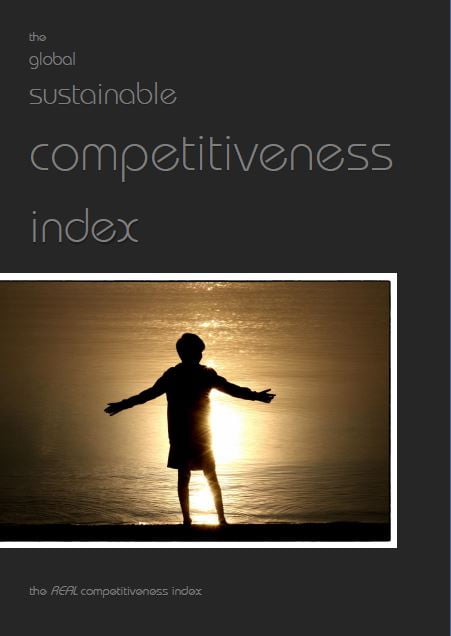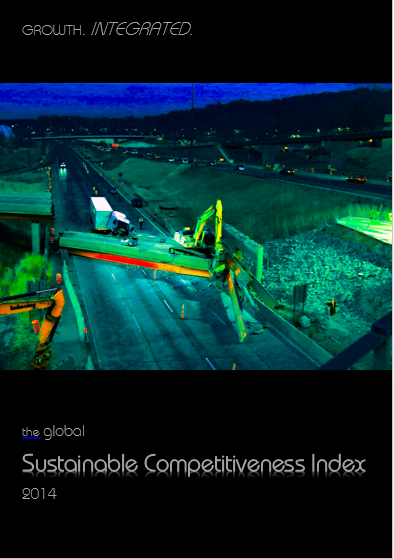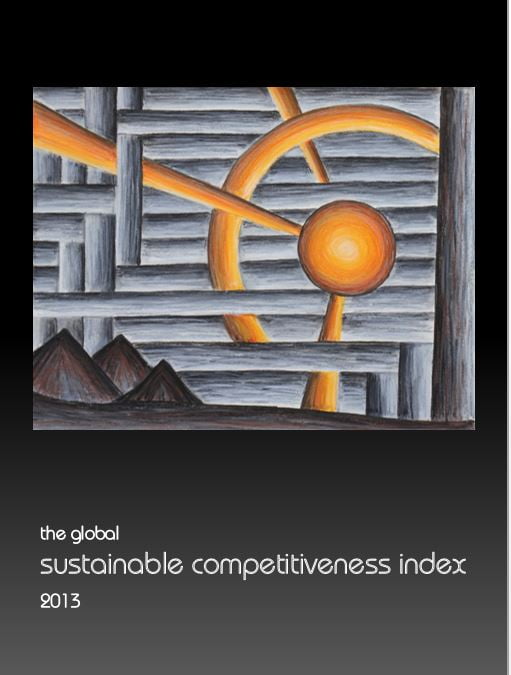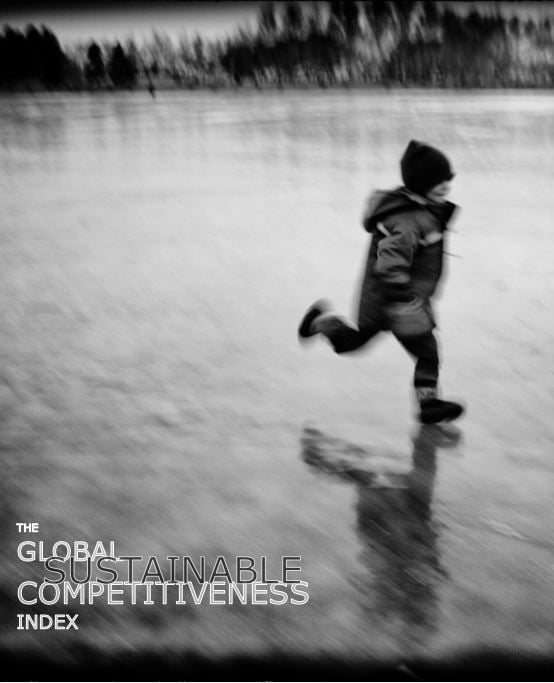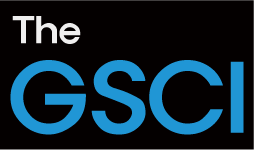
Global Sustainability Competitiveness Index
GSCI Downloads
The Global Sustainable Competitiveness Index 2024 is based on a new, extended methodology. Year-on-year comparision against past published data is therefore not advisable. For academic research purposes, time-series based on the new methodology are available. If you are interested in these, please get in touch.
Report/Data Download
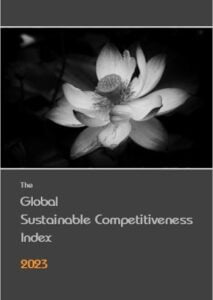
Download the report:
The Global Sustainable Competitiveness Report 2023
(PDF)
Download the data:
GSCI Scores 2023
(XLSX)
Focus: Gulf Countries

Are the Gulf countries ready for the energy transitions? Download the report:
How to replace fossil income in the Gulf countries
(PDF)
GSCI Credit Ratings
Country Credit Ratings based on the GSCI: ESG Sovereign Bonds
The Blueprint
Achieving Sustainable Competitiveness: Sustainable. Competitive.
- Scandinavia continues to top the Sustainable Competitiveness Index: of the top 6 spots, 5 are Scandinavian. Sweden keeps topping the Index;
- Only one country in the Top 20 is not European: Japan on 12 (South Korea 21);
- For the first time, China (ranked 30) overtakes the US on rank 32
- Germany ranks 15, The UK 16, and France 18;
- Brazil ranks 65, India 121, and Nigeria – Africa’s most populous nation – 156;
- Some of the least developed nations have a considerable higher GSCI ranking than their GDP would suggest (e.g. Colombia, Peu, Nepal, Bhutan, Bolivia, …)
Download the 2023 Report The Global Sustainable Competitiveness Index 2023 (PDF, 90 pages)
Download data: GSCI Scores 2023
A 7-page report with key performance data is available for ALL countries. Selected individual country reports:
US – USA GSCI 2023
Germany – Germany GSCI 2023
France – France GSCI 2023
UK – UK GSCI 2023
Sweden (leader of the 2023 Index) – Sweden GSCI 2023
Switzerland – Switzerland GSCI 2023
China – China GSCI 2023
South Korea – South Korea GSCI 2023
Japan – Japan GSCI 2023
India – India GSCI 2023
Brazil – Brazil GSCI 2023
Saudi Arabia – Saudi Arabia GSCI 2023
South Africa – Sout Africa GSCI 2023
Nigeria – Nigeria_GSCI_2023
Individual Sustainable Competitiveness performance reports for more than 180 countries: GSCI_2023_All Countries in a ZIP-file (17 MB; you will need a compression software to extract the files, such as 7-zip)
The Global Sustainable Competitiveness Index 2022
Highlights of the Global Sustainable Competiveness Report 2022:
- The five Scandinavian nations dominate the Sustainable Competitiveness Index with only Switzerland on 3rd in between.
- Only two countries in the Top 20 are not European: South Korea follows on 10, and Japan on 12. New Zealand (14).
- The USA is ranked 30, scoring low in Resource Efficiency and Social Capital
- China is ranked 31 – strong in Intellectual Capital, but low in Natural Capital & Resource Efficiency
- The UK ranks 7, Germany 16, Brazil 46, India 120, and Nigeria 126.
- Some of the least developed nations have a considerable higher GSCI ranking than their GDP would suggest (e.g. Nepal, Bhutan, Bolivia, …)
- Asian nations (South Korea, Japan, and China) lead the Intellectual Capital Index compromised by Natural Capital constraints and increasing resource consumption.
- The Social Capital Index ranking is headed by Northern European (Scandinavian) countries
Download the 2022 Report The Global Sustainable Competitiveness Index 2022 (PDF, 80 pages)
Download data: GSCI Scores 2022
A 6-page report with key performance data is available for ALL countries. Selected individual country reports:
US – USA GSCI 2022
Germany – Germany GSCI 2022
France – France GSCI 2022
UK – UK GSCI 2022
Sweden (leader of the 2022 Index) – Sweden GSCI 2022
Switzerland – Switzerland GSCI 2022
China – China GSCI 2022
South Korea – South Korea GSCI 2022
Japan – Japan GSCI 2022
India – India GSCI 2022
Brazil – Brazil GSCI 2022
Saudi Arabia – Saudi Arabia GSCI 2022
South Africa – Sout Africa GSCI 2022
Bhutan – Bhutan_GSCI_2022
Individual Sustainable Competitiveness performance reports for more than 180 countries: GSCI 2022 All Country Reports in a ZIP-file (17 MB; you will need a compression software to extract the files, such as 7-zip)
The Global Sustainable Competitiveness Index 2021
Highlights of the Global Sustainable Competiveness Report 2021:
- Sweden is leading the Sustainable Competitiveness Index, followed by all other Scandinavian nations. Only Switzerland on 3rd is breaking in.
- Only two countries in the Top 20 are not European: – Japan on 13, and New Zealand (14). South Korea follows on 21.
- China is ranked 32 – very strong in Intellectual Capital, but low on Natural Capital
- The USA is ranked 30, scoring low in resource efficiency and social capital
- Germany ranks 8, the UK 17 – Brazil 49, Russia 51, and India 130.
- Some of the least developed nations have a considerable higher GSCI ranking than their GDP would suggest (e.g. Nepal, Guyana, Laos, Belize, …)
- Asian nations (South Korea, Japan, Singapore, and China) lead the Intellectual Capital Index – the basis of innovation. However, achieving sustained prosperity is potentially compromised by Natural Capital constraints and increasing resource consumption.
- The Social Capital Index ranking is headed by Northern European (Scandinavian) countries,
Download the 2021 Report The Global Sustainable Competitiveness Index 2021 (PDF, 72 pages)
Download data: GSCI Scores 2021
Press release: Press Release GSCI 2021
Analysis: ESG Country Credit Ratings vs. Conventional Sovereign Bond Ratings: ESG Sovereign Bonds
The Natural Capital Index – Cluster Analysis: Natural Capital Index 2021
The Global Sustainable Competitiveness Index 2020
Highlights of the Global Sustainable Competiveness Report 2020:
- Scandinavia is still leading the way: Sweden is leading the Sustainable Competitiveness Index – closely followed by Iceland, Denmark & Finland, while Norway is ranked 9
- The top 20 are dominated by Northern European countries, including the Baltic states
- Of the top twenty nations only one is not European – New Zealand on 11,
- Germany ranks 15, the UK 17,
- The World’s largest economy, the US, is ranked 32. The US ranks particularly low in resource efficiency, but also social capital – potentially undermining the global status of the US in the future
- Of the large emerging economies (BRICs), China is ranked 37, Brazil 49, Russia 51, and India 130.
- Some of the least developed nations have a considerable higher GSCI ranking than their GDP would suggest (e.g. Nepal, Guyana, Laos, Belize, …)
- Asian nations (South Korea, Japan, Singapore, and China) lead the Intellectual Capital Index – the fundament of innovation. However, achieving sustained prosperity in these countries might be compromised by Natural Capital constraints and current low resource efficiency
- The Social Capital Index ranking is headed by Northern European (Scandinavian) countries, indicating that Social Cohesion is the result of economic growth combined with a country-wide social consensus
Download the 2020 Report The Global Sustainable Competitiveness Index 2020 (PDF, 63 pages)
Download the press release Press Release GSCI 2020
Download data: GSCI Scores 2020
Global Sustainable Competitiveness Index 2019
Highlights of the Global Sustainable Competiveness Report 2019:
- The top 5 spots are occupied by Scandinavia: Sweden is leading the Sustainable Competitiveness Index – followed by the other 4 the Scandinavian nations.
- The top 20 are dominated by Northern European countries, including the Baltic states
- Of the top twenty nations only two are not European – New Zealand on 12, and Canada on 19.
- Germany ranks 15, the UK 17, and the World’s largest economy, the US, is ranked 34. The US ranks particularly low in resource efficiency, but also social capital – potentially undermining the global status of the US in the future
- Of the large emerging economies (BRICs), China is ranked 37, Brazil 49, Russia 51, and India 130.
- Some of the least developed nations have a considerable higher GSCI ranking than their GDP would suggest (e.g. Laos, Timor, Burma, Bhutan, Suriname…)
- Asian nations (South Korea, Japan, Singapore, and China) lead the Intellectual Capital ranking. However, achieving sustained prosperity in these countries might be compromised by Natural Capital constraints and current high resource intensity/low resource efficiency
- The Social Cohesion ranking is headed by Northern European (Scandinavian) countries, indicating that Social Cohesion is the result of economic growth combined with a country-wide social consensus
Download the Report Global Sustainable Competitiveness Index 2019 (PDF, 49 pages)
Download the press release (Global) Press Release GSCI 2019
Press release “Germany in the GSCI 2019” (German) Press Release GSCI 2019 – Deutschland
Download the data: GSCI Scores 2019
The Global Sustainable Competitiveness Index 2018
Download the Report The Global Sustainable Competitiveness Index 2018 (PDF, 63 pages)
Download data: GSCI Scores 2018
The Global Competitiveness Report 2017
Highlights of the Global Sustainable Competiveness Report 2017:
- Of the top twenty nations only three are not European – New Zealand on 13, South Korea on 16, and Japan on 20.
- Scandinavia covers the top 5 ranks. Sweden is leading the Sustainable Competitiveness – followed by the other 4 the Scandinavian nations.
- The top 20 are dominated by Northern European countries, including the Baltic states and Slovenia
- Germany ranks 14, the UK 22, and the World’s largest economy, the US, is ranked 29. The US ranks particularly low in resource efficiency, but also social capital – undermining the global status of the US in the future
- Of the large emerging economies (BRICs), China is ranked 32, Brazil 42, Russia 43, and India 121.
- Some of the least developed nations have a considerable higher GSCI ranking than their GDP would suggest (e.g. Laos, Timor, Burma, Bhutan, Suriname…)
- The US is set to considerabely forfeit competitiveness if policies as proposed by the new administration are implemented, while China is expected to improve for 5-10 years to come
Download the Report The Global Competitiveness Report 2017 (PDF, 58 pages)
Download data: GSCI scores 2017
US set for decline if new policies are fully implemented: Trump-US, China: Sustainable Competitiveness Outlook
Why credit ratings need to integrate sustainability: Sovereign bonds and sustainability
The Global Sustainable Competitiveness Index 2016
Highlights of the Global Sustainable Competiveness Report 2016:
- Sweden is leading the Sustainable Competitiveness – followed by the other Scandinavian economies
- The top 20 are dominated by Norther European countries, including the Baltic states and Slovenia
- The only non-European countries in the top 20 are New Zealand (12) and Japan (15)
- Germany ranks 14, the UK 21, and the World’s largest economy, the US, is ranked 32. The US ranks particularly low in resource efficiency, but also social cohesion. If not tackled, the combination of the two is likely to undermine the global status of the US in the future
- Of the large emerging economies, China is ranked 37, Brazil 41, Russia 45, and India 152.
- Asian nations (South Korea, Japan, Singapore, and China) lead the Intellectual Capital ranking. However, achieving sustained prosperity in these countries might be compromised by Natural Capital constraints and current high resource intensity/low resource efficiency
- The Social Cohesion ranking is headed by Northern European (Scandinavian) countries, indicating that Social Cohesion is the result of economic growth combined with social consensus
Download the The Global Sustainable Competitiveness Index 2016 (PDF, 58 pages)
Why the US is only ranked 32 in the GSCI 2016: What The Donald
Korea – leading the World in Intellectual Capital, lagging in resource intensity: Korea & Sustainable Competitiveness: Status & Outlook
Why the GSCI is superior to sovereign credit ratings and the WEF Index: Sovereign bonds and sustainability
The Global Sustainable Competitiveness Report 2015
The Global Sustainable Competiveness Ranking 2015 is topped by Iceland for a second year running, followed by the Scandinavian nations. Key take-aways, some surprising, others not-so-surprising, include:
- Iceland is leading the Sustainable Competitiveness Index for a second year – the country that refused to bail out its banks in the aftermath of the financial crisis 2007/2008.
- The Sustainable Competitiveness Index is topped by Scandinavian nations four the 4th consecutive year. The leaders are followed by other North-Western European Nations. Only Japan (10th) breaks into the Nordic phalanx in the top ten.
- The only non-European country in the top 20 are Japan (10), New Zealand (15) and Canada (19)
- The World’s largest economy, the US, is ranked 40th. The UK is ranked 47th. Russia is above both on 33.
- Of the booming emerging economies, Brazil is ranked 23, China 24, South Korea 39, and India 133.
- The Natural Capital sub-rankings are topped by countries with a rich biodiversity, favourable climate and sufficient water resources. Distinctions are also visible between the more industrialised countries, indicating that some countries will face lower obstacles with the coming raw material and energy scarcity
- Asian nations (Singapore, South Korea, Japan, and China) lead the Sustainable Innovation Competitiveness ranking. However, achieving sustained prosperity in these countries might be compromised by Natural Capital constraints and current high resource intensity/low resource efficiency
- The Social Cohesion ranking is headed by Northern European (Scandinavian) countries, indicating that Social Cohesion is the result of economic growth combined with some sort of social consensus
- Sovereign bond ratings do not take into account the underlying sustainability factors -they do not fully reflect investor risks.
Download the The Global Sustainable Competitiveness Report 2015 (PDF, 58 pages)
The Global Sustainable Competitiveness Index 2014
Contrary to a GDP ranking, the Sustainable Competitiveness score is based on scoring current performance data as well as performance trends (increase/decrease) over the past 5 years. The combination of absolute comparison and trends reflects a momentary picture and indicates the future potential of a country. The Sustainable Competiveness Ranking 2014 reveals some surprising, and other not-so-surprising results:
- The Sustainable Competitiveness Index is topped by Scandinavian nations four the 3rd consecutive year. Only Japan (2nd breaks into the Nordic phalanx. The leaders are followed by other North-Western European Nations. The only non-European country in the top 20 are Canada (9), Japan (12), and New Zealand (14).
- The World’s largest economy, the US, is ranked 27th. Of the booming emerging economies, Brazil is ranked 28th, South Korea 30th, China 38th, Russia 48th, and India 126th.
- The Natural Capital sub-rankings are topped by countries with a rich biodiversity, favourable climate and sufficient water resources. Distinctions are also visible between the more industrialised countries, indicating that some countries will face lower obstacles with the coming raw material and energy scarcity
- Asian nations (Singapore, South Korea, Japan, and China) lead the Sustainable Innovation Competitiveness ranking. However, achieving sustained prosperity in these countries might be compromised by Natural Capital constraints and current high resource intensity/low resource efficiency
- The Social Cohesion ranking is headed by Northern European countries, indicating that Social Cohesion is the result of economic growth combined with some sort of social consensus
The Sustainable Competitiveness Report 2013
The Global Sustainable Competitiveness Index scores and ranks 176 countries according to their capability to sustain or increase wealth in a resource-constraint, globalised world. The Index was first developed and published in 2012, based on a competitiveness model that incorporates all aspects required to sustain wealth, the environment, and social cohesion. The four main pillars of the model are: natural capital (the availability of natural resources), resource efficiency (as a measurement of industrial competitiveness), sustainable innovation (as a measurement of the capability to sustain economic activities in a competitive global market) and social cohesion (the foundations of smooth operation and secure investments).
Key findings of the 2013 Index include:
- The Scandinavian nations have tightened their grip on the top four positions, followed by Central and Northern European Nations. Canada (7) is the only non-European country in the top 10
- The large economies keep their position within the rankings: Japan (12), UK (25), US (27). Brazil (28) is highest ranked amongst the BRICS countries
- Asian nations (Singapore, South Korea, Japan, and China) remain leading in terms of sustaining innovation capabilities
- Natural Capital and Resource Efficiency rankings are topped by countries with high availability of water resources, favourable climate conditions, and rich biodiversity. Clear distinctions are visible between countries within the same development stages. Large parts of the human population are living in countries with high natural capital depletion combined with low resource efficiency (China, India), raising concerns regarding the capabilities to achieve sustainable wealth.
- The Social Cohesion ranking is headed by Scandinavian and Northern European countries, indicating that a strong social fabric is a result of the combination of economic development and equality initiatives.
Download the The Global Sustainable Competitiveness Report 2013
Sustainable Competitiveness Vs. WEF Competitiveness
A comparative analysis with the Global Competitiveness Report published by the World Economic Forum (WEF) (the “Davos Man” competitiveness index), which focuses purely on business-related competitiveness indicators shows
- The WEF index is based to 70% on the WEF’s “executive opinion survey”. The Sustainable Competitiveness Index in contrast is based to 90% on performance data and trends of performance data
- The WEF Index shows a very high correlation to current GDP per capita rankings. The Sustainable competitiveness correlation to GDP is distinctively lower, indicating that sustainable competitiveness leads to higher wealth and not vice-versa
- Analysis of competitiveness scores and growth rates and changes to growth rates shows a negative correlation for the WEF Index, suggesting that the competitiveness model does not fully reflect future competitiveness
Achieving Sustainable Competitiveness
A review of the findings and how diferent aspects of national sustainable competitiveness affect future development:
The Global Sustainable Competitiveness Report 2012
Data collected by the World Bank, the IMF and various UN has been analysed to calculate a sustainable competitiveness score. The data has been compared for 176 countries around the World to establish the Global Sustainable Competitiveness Ranking.
Key findings include:
- The Sustainable Competitiveness Index is topped by the Scandinavian countries, followed by North-Western European Nations
- The Natural Capital and Resource Intensity rankings are led by less know countries with a rich biodiversity, favourable climate and sufficient water resources. Clear distinctions are visible between the more industrialised countries, indicating that some countries will face lower obstacles with the coming raw material and energy scarcity than low-efficient countries
- Asian nations (Singapore, China, Japan, South Korea) top the Sustainable Innovation Competitiveness ranking. However, achieving sustainable development for these countries might be compromised by Natural Capital constraints and current high resource intensity/low resource efficiency
- The Social Cohesion ranking is headed by Northern European and Scandinavian countries, indicating that Social Cohesion is the result of economic growth combined with social consensus
Download the The Global Sustainable Competitiveness Report 2012

![GSCI 2024 Cover Download the report: [download id="11718"] (PDF)](https://solability.com/wp-content/uploads/2024/12/GSCI-2024-Cover-1.jpg)
![GSCI-data Download the data : [download id="11713"] (xlsx)](https://solability.com/wp-content/uploads/2024/12/GSCI-data-282x400.jpg)
![ESG Sovereign Bond Rating Sovereign Bond Credit Ratings based on the GSCI: [download id="2650"]](https://solability.com/wp-content/uploads/2024/12/ESG-Sovereign-Bond-Rating.jpg)
![Sustainable-Competitiveness-Cover Achieving Sustainable Competitiveness: [download id="3496"]](https://solability.com/wp-content/uploads/2024/12/Sustainable-Competitiveness-Cover.jpg)






